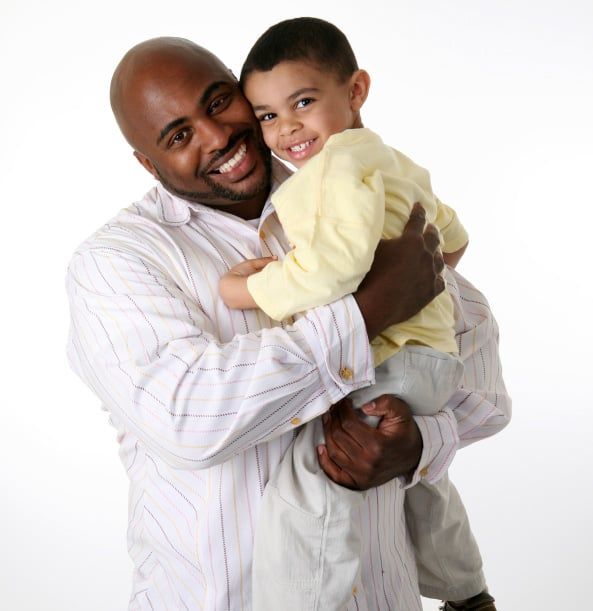Tooth Extraction
Tooth Extraction
Avenue D Family Dental are experienced tooth extraction dentists in Brooklyn. When the extraction of a tooth is required:
- An incision in the gums is made
- The tooth is removed
- The area is stitched up and is allowed to heal
During this time, it is important to think about a tooth replacement option. An extracted tooth leaves an open area in the jaw which, in time, allows the neighboring teeth to drift into the area where the tooth was extracted. This in turn, causes a chain reaction to all the surrounding teeth. Also, if you are considering placing an implant in the future, you should consider asking your dentist to place a bone graft at the time of surgery to preserve the bone width and height.
Wisdom Tooth Problems
The problems involving your wisdom teeth may be caused by the size of your jaw and/or by how crowded your teeth are. Common warning symptoms that there is an un-natural problem in the development of your wisdom teeth could be pain and swelling.
Symptoms can be caused by:
- Infection to the gums
- A crowded tooth displacing neighboring teeth
- A decayed wisdom tooth
- Poorly positioned wisdom tooth
- A cyst that destroys bone
After Extraction Care
- DO NOT RINSE MOUTH TODAY
Tomorrow rinse mouth gently every 3 to 4 hours (especially after meals) using one quarter teaspoon of salt to a glass of warm water. Continue rinses for several days. - BLEEDING
Following extractions, some bleeding is to be expected. If persistent bleeding occurs, place gauze pads over bleeding area and bite down firmly for one-half hour. Repeat if necessary. - SWELLING
Ice bag or chopped ice wrapped in a towel should be applied to the operated area; one-half hour on, and one-half hour off for 4-5 hours. - PAIN
For mild to average pain, use any non-aspirin type of medication you like. If the doctor prescribes a specific pain medication, follow the instructions and do not mix with other medications unless approved by your doctor. - FOOD
Light diet is advisable during the first 24 hours. - BONY EDGES
Small sharp bone fragments may work up through the gums during healing. These are not roots; if annoying, return to our office for their simple removal. - If any unusual symptoms occur, call the office at once.
- The proper care following oral surgical procedures will hasten recovery and prevent complications.

Post-Surgery Instructions for Children
Anesthesia - The feeling of numbness will begin to wear off in 30 minutes to 4 hours. Until that time, avoid all hot foods or liquids, and do not chew. This is to prevent accidentally burning or biting the lips, cheeks, inside of your mouth or tongue until the feeling has returned
Gauze Pack - Fold the gauze into a small pack and place over the extraction site and apply firm pressure for one to two hours. Change the gauze pack every 15-30 minutes.
Bleeding - It is normal for the extraction site to bleed slightly or ooze blood for 12 to 24 hours following surgery.
Ice Pack - For the first 2 to 8 hours after surgery, ice packs should be applied to the outside of the face over the area of the extraction site. The ice pack should be held in place for 15 minutes on, and then removed for 15 minutes. Doing this throughout the day will help reduce discomfort and swelling.
Medications - DO NOT TAKE ASPIRIN PRODUCTS due to the possible increase in bleeding potential. If prescription medications were prescribed please follow label instructions carefully. For most extractions, a non-aspirin over the counter pain medication will provide good pain relief. Do not take more than the recommended dosage!
Diet - A liquid or soft diet should be adhered to for the first 12 to 24 hours after surgery. It is important to drink plenty of liquids for the first day or two. Avoid the use of a straw as it may dislodge the blood clot that is forming in the extraction site.
Oral Hygiene - Clean the rest of your mouth as usual, however avoid bumping or brushing the extraction site. DO NOT RINSE OR SWISH YOUR MOUTH for the first 24 hours following surgery.
Possible Complications:
Dry Socket - This is sometimes a problem after surgery. The symptoms associated with dry socket are constant moderate to severe pain, bad taste, putrid odor, and poor clot formation at the surgical site. If you think you have ANY of these symptoms call our office as soon as possible.
Fever - Monitor your temperature for the first 24 to 48 hours. Any elevated temperature should be reported to our office.
Swelling - Some swelling during the first 24 to 48 hours can be expected.

Surgery FAQ's
Pre-Surgical
Q: Is there a food and drink restriction prior to surgery?
A: If treatment calls for the patient to be sedated then yes there are food and/or drink restriction. The patient must not consume anything, including water for 6-8 hours prior to surgery.
Q: Will antibiotics be prescribed prior to surgery?
A: We commonly use antibiotics to kill bacteria found in the mouth, which will also prevent infection after treatment, particularly with the placement of dental implants immediately after extracted teeth. The specific drug used depends on the medical profile and well being of the patient and the type of treatment.
Q: Do I need to avoid certain medications?
A: It is important to discuss all medication with New York Family Dentistry during your pre-surgical consultation. In most cases medication should be continued unless specifically instructed to withhold them. Typically Plavix, Aspirin, Coumadin and other types of blood thinners can also be continued. When necessary New York Family Dentistry will consult with your physician to safely manage your medications.
Q: Are the rules different for ORTHOGNATIC SURGERY different from tooth extractions of dental implant placement?
A: Yes, very different. Patients who are undergoing surgical procedures on only one jaw usually go home the same day. Patients who are having surgery on both jaws will generally stay overnight. Generally it is necessary to wire the jaws together after orthognatic surgery. In general, the jaws are immobilized securely with rubber bands for the first 1-2 weeks and then loosely for an additional 3-5 weeks. It is very important to discontinue any medication which are blood thinners or which may increase your tendency to bleed. Please stop taking the following medications at least 2 weeks before surgery. New York Family Dentistry will provide specific instructions prior to your surgery date.
Surgery
Q: Will anesthesia be used?
A: Avenue D Family Dental will discuss your anesthesia options. Our goal is to provide minimal discomfort as possible.
Q: How is the anesthesia administered?
A: Depending upon your treatment we may administer a local anesthesia such as lidocaine or nitrous oxide. For a more involved treatment we may recommend an oral sedation or intravenous sedation.
Q: What do I need to be aware of before intravenous sedation?
A: You may not have anything to eat or drink (including water) for eight (8) hours prior to the appointment. No smoking at least 12 hours before surgery. Ideally, cut down or stop smoking as soon as possible prior to the day of surgery. A responsible adult must accompany the patient to the office, remain in the office during the procedure, and drive the patient home. The patient should not drive a vehicle or operate any machinery for 24 hours following the anesthesia experience. Please wear loose fitting clothing with sleeves which can be rolled up past the elbow, and low-heeled shoes. Contact lenses, jewelry, and dentures must be removed at the time of surgery. Do not wear lipstick, excessive makeup, or nail polish on the day of surgery. If you have an illness such as a cold, sore throat, stomach or bowel upset, please notify the office. If you take routine oral medications, please check with New York Family Dentistry prior to your surgical date for instructions.
Q: Will my vital signs be monitored during and after treatment?
A: New York Family Dentistry and/or one of their highly trained surgical assistants will continuously monitor your vital signs.
Q: How long will the surgery take?
The length of surgery depends on your treatment. Some surgery's are less than 30 minutes, while other procedures may take considerably longer. New York Family Dentistry will provide you with the estimated time of surgery at your pre-surgical consultation.
Q: Will there be a lot of bleeding with a tooth extraction?
A: It's important for a blood clot to form to stop the bleeding after a tooth extraction. You will be asked to bite on a gauze pad for 30-45 minutes immediately after the extraction. If the bleeding or oozing still persists, place another gauze pad and bite firmly for another 30 minutes. You may have to do this several times. After the blood clot forms, it is important not to disturb or dislodge the clot as it aids healing. Do not rinse vigorously, suck on straws, smoke, drink alcohol or brush teeth next to the extraction site for 72 hours. These activities will dislodge or dissolve the clot and retard the healing process. Limit vigorous exercise for the next 24 hours as this will increase blood pressure and may cause more bleeding from the extraction site.
Post Surgery
Q: How long is the on-site recovery before I can leave the office?
A: Plan to stay in our recovery room for at least 20 minutes if sedation was involved, or until New York Family Dentistry is satisfied that you are recovered sufficiently to go home. If your procedure required sedation you must be completely alert before leaving the office for home. You must have a ride home. You may not drive yourself. It is recommend that you do not drive for a minimum 24 hours after surgery.
Q: Will you prescribe antibiotics and pain medication?
A: Procedure and patient health are determining factors of what antibiotic and/or medication will be prescribed. Call the office if the medication does not seem to be working. If antibiotics are prescribed, continue to take them for the indicated length of time, even if signs and symptoms of infection are gone. Drink lots of fluid and eat nutritious soft food on the day of the extraction. You can eat normally as soon as you are comfortable. Dr. Weiss will discuss what, when, how long and dosage with you in both the pre-surgery and post surgery interviews.
Recovery
Q: How long will I be off of work/out of school?
A: Depending on the extent of the procedure and type of sedation you may resume work and a normal life style anywhere from a few hours to a few days. It is important to resume your normal dental routine after 24 hours. This should include brushing and flossing your teeth at least once a day. This will speed healing and help keep your mouth fresh and clean. After a few days you will feel fine and can resume your normal activities. If you have heavy bleeding, severe pain, continued swelling for 2-3 days, or a reaction to the medication, call our office immediately.
Q: Will there be swelling or facial bruising?
A: After the tooth is extracted, you may feel some pain and experience some swelling. An ice pack or an unopened bag of frozen peas or corn applied to the area will keep swelling to a minimum. Take pain medications as prescribed. The swelling usually subsides after 48 hours. In some treatments there may be some minor bruising; however, in procedures such as dental implant placement ordinarily there is no bruising seen. For teeth removal or jaw procedures, women and/or very light skinned patients may experience slight bruising. Taking blood thinner will help reduce bruising. It is, however, not uncommon to have a black eye or discolored cheek or neck following extensive procedures. New York Family Dentistry will discuss what bruising if any would be related to your procedure treatment.
A Beautiful Smile Is Waiting For You
Our office provides smile makeovers to achieve the beautiful, natural look you seek. We can reshape your natural teeth to make them straighter and more youthful. Our office is easily accessible and makes it convenient to those living near Brooklyn to get the care they deserve.
Book An Appointment Now
Book An Appointment Now
Do you need dental work done? Has it been a while since you've been to the dentist? Do you just need a regular cleaning or are you looking for a brand new smile? Requesting an appointment is available online 24/7 and is as simple as submitting a simple form.
Book An Appointment Now